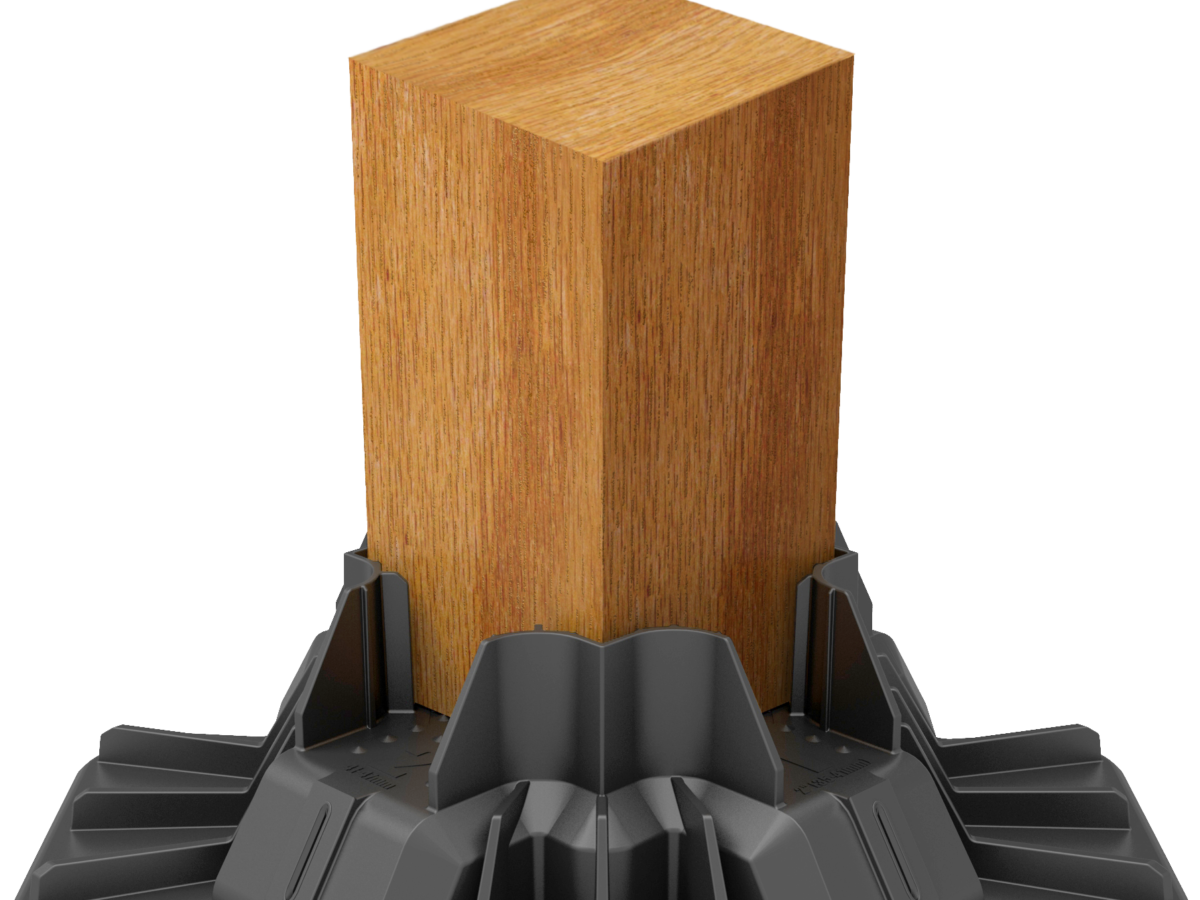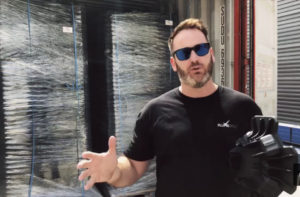Can you take Australian waste, turn it into a product, and sell it to the world’s richest nation?

A little over a week ago, a Queensland-based company announced a deal with an unnamed North American giant to export countless units of a product you’ve probably seen at your local Bunnings.
The client – “one of the world’s largest” distributors and retailers, according to the Aussie manufacturer – is perhaps not the most interesting part of the story. We will find out who they are in time.
The exports are of a product, TuffBlock, a post support system for decking projects. Each support is made of 100 per cent recycled polymers. This shows the opportunity attached to the circular economy, a justifiably hot topic for manufacturers right now.
Alan Brady, General Manager at Venlo Investments, the maker of TuffBlock, “absolutely” expects interest in the trend to continue next year.
“We will continue to make our key focus in product development the repurpose of recycled plastic into products with huge life cycles,” Brady adds.
“Primarily in the construction sector, and even more specifically into foundation systems that will benefit from the material properties and our design innovations.”
According to Venlo, TuffBlock is “an alternative to digging holes, mixing concrete and waiting for it to set.” The instant deck foundation blocks weigh 680 grams each (one 28th of the concrete they can replace) and can support up to 770 kilograms.
TuffBlock won the Evolve Group a Good Design Award in 2015.
Brady says the supports use a combination of post-consumer and post-industrial recycled materials.
“Everything from recycled battery cases, bottle tops, milk crates, carpet fibres etc. One of the focusses we have is designing products that can take the materials no one else really can,” he tells @AuManufacturing.
“The good materials are all being readily recycled e.g. PET, the clean stuff is being captured and recycled and is now getting a premium price over virgin material because consumers are aware and companies want to protect their brand by using recycled materials. We want to work in the space where plastics are still going to landfill or worse into the oceans and design products that can use this different grade of material.”
They will leave the PET to companies like Coca-Cola, which announced last month an intention to build an east coast recycling plant.
Brady says Venlo works with “basically every recycling and reprocessing company in Australia and several overseas” to source materials for its projects.

Brady discusses the deal: https://www.linkedin.com/feed/update/urn:li:activity:6606023221986889728/
“All of the TuffBlock material is sourced locally in Australia,” he adds.
“Our next stage is to work with our manufacturing partners at Evolve to actually install and commission a recycling and reprocessing line at their factory here in Brisbane, which will bring the recycling even closer to home.”
The work is an important example of what can be done with recyclable plastic materials.
Important because the country’s record with reusing plastic is poor. According to National Waste Report 2018, only 12 per cent of our plastic is recycled.
Important because most of the small amount of our plastic that gets recycled is actually recycled overseas.
Important because everywhere, up to the highest levels of government, the need to solve our plastic waste problem is acknowledged.
Important because one old way of dealing with recyclable plastic – baling it up and shipping it out – will be banned altogether in July 2021.
It’s also important because it can be good business. Brady hopes 100 shipping containers’ worth of TuffBlock will be exported to the new client in the next 12 months. Each of these 40-footers contains the equivalent of 3.2 million bottle caps. “You do the math on that,” offers Brady.
You could also weigh up the desirability of chucking all that plastic in landfill – or sending it to developing nations – versus transforming it into a high-value product for export to the world’s richest country.
– Brent Balinski, editor, @AuManufacturing
Subscribe to our free @AuManufacturing newsletter here.
@aumanufacturing Sections
Analysis and Commentary Awards casino reviews Defence Gambling Manufacturing News Online Casino Podcast Technology Videos





